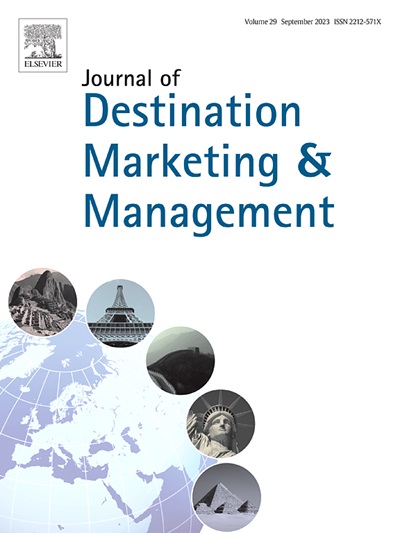地方政府旅游官员对智能目的地模式的满意度:卡诺方法案例研究
IF 7.4
2区 管理学
Q1 HOSPITALITY, LEISURE, SPORT & TOURISM
引用次数: 0
摘要
本研究旨在利用卡诺方法分析地方政府旅游官员对智能目的地模型的满意度。研究提出了一个因果模型,其中包含旅游官员对智能目的地模型满意度的四个前因变量:感知有用性、感知易用性、对模型的信任和挑战。以瓦伦西亚大区(西班牙)的智能目的地网络为案例,对智能目的地模型进行了应用研究。研究结果表明,信任度、易用性和挑战与满意度呈线性关系,而有用性与满意度呈非线性关系。然而,结构方程模型分析表明,只有对模型的信任度会显著影响地方政府旅游官员对模型的满意度。本文章由计算机程序翻译,如有差异,请以英文原文为准。
Local Government Tourism Officer satisfaction with the Smart Destination model: A case study with the Kano method
The aim of this research is to analyse local government tourism officer satisfaction with a smart destination model using the Kano method. A causal model is proposed with four antecedent variables of tourism officer satisfaction with the smart destination model: perceived usefulness, perceived ease of use, trust in and challenges of the model. The smart destination model applied to a smart destination network in the Valencian Community (Spain) is taken as a case study. The results show that trust, ease of use and challenges have a linear relationship with satisfaction, while usefulness has a non-linear relationship. However, structural equation modelling analysis shows that only trust in the model significantly influences local government tourism officer satisfaction with the model.
求助全文
通过发布文献求助,成功后即可免费获取论文全文。
去求助
来源期刊
CiteScore
18.60
自引率
3.60%
发文量
46
审稿时长
43 days
期刊介绍:
The Journal of Destination Marketing & Management (JDMM) is an international journal that focuses on the study of tourist destinations, specifically their marketing and management. It aims to provide a critical understanding of all aspects of destination marketing and management, considering their unique contexts in terms of policy, planning, economics, geography, and history. The journal seeks to develop a strong theoretical foundation in this field by incorporating knowledge from various disciplinary approaches. Additionally, JDMM aims to promote critical thinking and innovation in destination marketing and management, expand the boundaries of knowledge, and serve as a platform for international idea exchange.

 求助内容:
求助内容: 应助结果提醒方式:
应助结果提醒方式:


